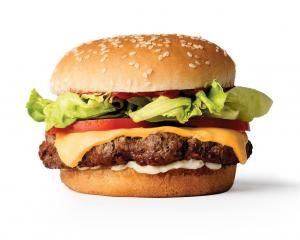
This make-do attitude infiltrated the psyche of generations of New Zealanders. A friend of mine went off to post-doc in Europe — her lab found themselves with no wire loops for plating bacteria, when she suggested that they make some, their shock was palpable.

I believe it is, but perhaps in a different way to what it once was. Data and information are commodities. What we do with them and how we reinvent products is where the innovation begins. On top of that, we can reach markets and scale internationally in ways we have never had access to before — it’s time for the No8 wire mentality to take off and reach global scale.
My son makes surfboards and he has been learning about alternate materials to polystyrene and fibreglass, which are poor for our health and stay in landfills for generations. He is exploring mycelium (fungal roots), hemp, wool and bio-resins. He has connected with innovators in the United States and elsewhere. He is learning from others, via YouTube and the incredible mentoring network at the Otago Polytechnic. He can build his own products and sell via social media, with low overheads — the only thing that will stop him, will be his own belief.
Similarly, in my new business, we have online access to the best science in the world. Fifty years ago, we would have spent hours photocopying in a library, we would have had to write to scientists who may or may not have written back. Now we can Zoom with the best of the best. We have set up collaborations and potential markets within weeks, rather than years.
I have been blown away by just how fast we are able to do things and how quickly we can find the information we need and how willing people are to share. Of course, we live in the “sharing economy”. The days of protection and secrets belong to more stuffy eras of the past. I just wish everyone understood that.
Steve Jobs said, “good artists copy, great artists steal” .I suspect he meant this somewhat facetiously, but the ring of truth is that we are always learning from others who are more knowledgeable than ourselves. Original thinkers can interpret the minds of giants and develop new products and solutions. No-one creates or invents in a vacuum and Steve Jobs recognised this.
Can we teach innovation? We can teach innovation theory, we can also teach the knowledge fundamentals of maths, science, languages and arts, but innovation itself comes from attitude and single mindedness. I have a problem to solve and I don’t care where I find the know-how, or what disciplines I need to cross, I will solve that problem. Famously, Thomas Edison made 1000 attempts to invent the lightbulb before he ultimately succeeded.
My business partner at Zestt suffers from an autoimmune disease, sarcoidosis. I have worked with super-smart people all my life, and I have to say, he is the most innovative. This comes from his fierce determination to understand sarcoidosis and help himself and others. He doesn’t care who he speaks with and what disciplines he crosses, he learns, he creates and he experiments. He is just unstoppable.
Such innovative attitudes can be fostered. My grandfather was ham radio enthusiast, who spent hours tinkering in his radio shack. I would spend time in the shack with him, but I wasn’t interested in radio technology. I was interested in biology, so after fishing, he would sit with me on the lawn dissecting fish, working out what was joined to what, where the blood flowed and where “other stuff”’ flowed. We chatted and hypothesized — he understood curiosity was worth nurturing.
Do New Zealanders still have the No8 wire mentality? Absolutely we do. As our young people face climate change, over-population and expensive houses, watch the innovation explode — it has to. The best thing we can do is to help them believe solutions are possible and play our role in fostering their curiosity and determination.
• Anna Campbell is the Co-Founder of Zestt Wellness, a nutraceutical company and a partner of AbacusBio Ltd, an agri-technology company.












